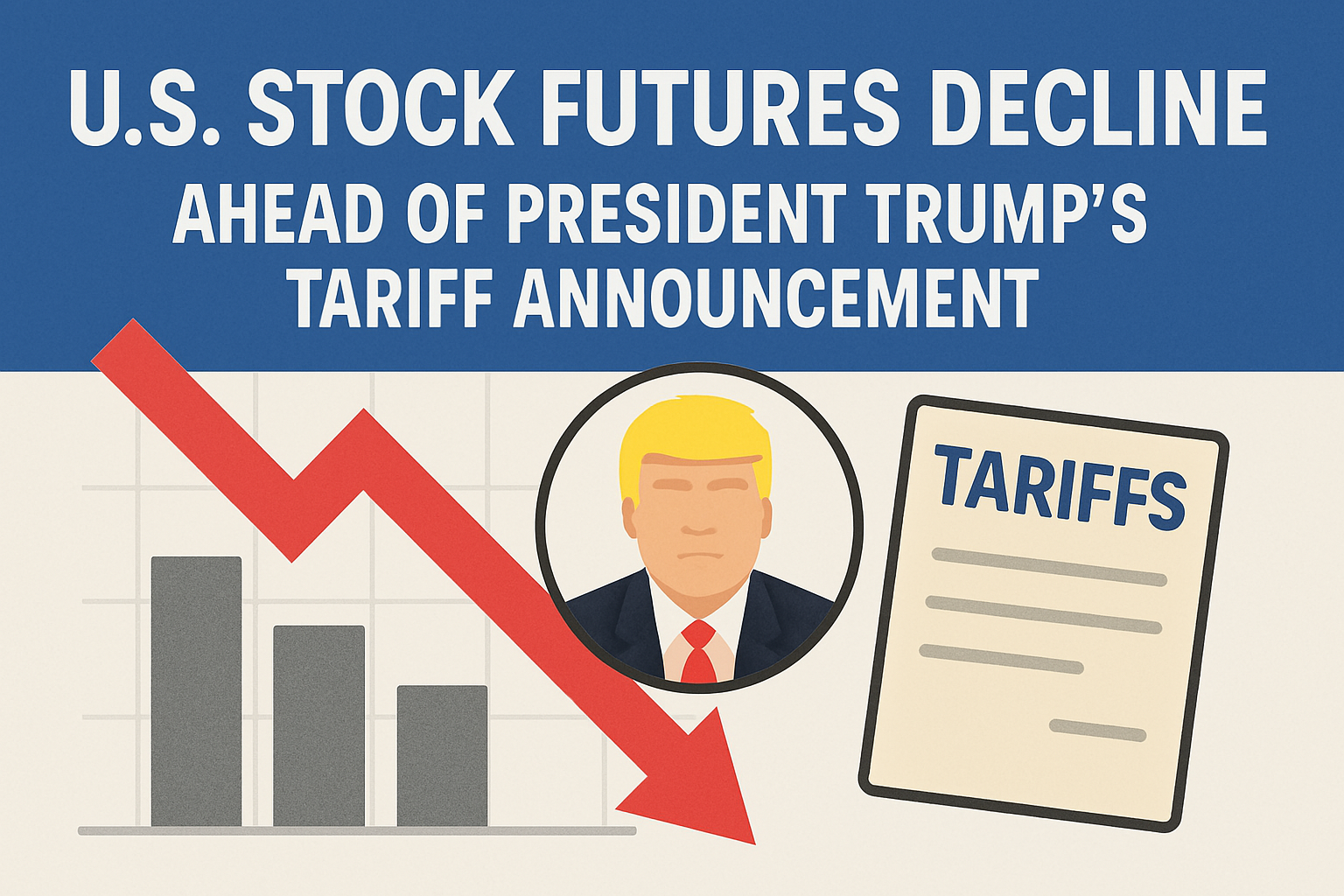U.S. stock index futures are trending downward as investors brace for President Donald Trump’s impending “Liberation Day” tariff announcement. The proposed tariffs, expected to align U.S. tariff rates with those of major trading partners, have introduced fresh concerns about market stability and economic growth. Additionally, investors are closely watching private sector payroll data for further insight into employment trends and the broader economic outlook.
Market Reaction and Economic Concerns
Stock futures took a hit in pre-market trading, with the S&P 500, Dow Jones Industrial Average, and Nasdaq Composite all posting declines. Market analysts suggest that uncertainty surrounding the tariff announcement is causing hesitation among investors, leading to increased volatility in equity markets.
Meanwhile, the upcoming private payroll data from ADP is another key factor shaping investor sentiment. A strong jobs report could bolster confidence in the U.S. economy, while a weak report might amplify fears of an economic slowdown exacerbated by trade uncertainties.
Why This Matters for Investors
The potential impact of new tariffs on businesses and markets cannot be understated. Key concerns include:
- Corporate Profitability: Higher tariffs could increase costs for U.S. companies reliant on imported goods, potentially affecting profit margins and stock valuations.
- Sector-Specific Impacts: Industries with heavy reliance on global supply chains, such as technology, automotive, and manufacturing, may experience significant price volatility.
- Market Volatility: The uncertainty surrounding trade policy decisions could lead to swings in investor sentiment, affecting stock prices in both the short and long term.
Future Trends to Watch
Trade Policy Developments
Investors should monitor upcoming statements from the White House and international trade partners regarding potential retaliatory measures. The response from countries like China and the European Union will play a crucial role in shaping the global trade landscape.
Labor Market Data
The ADP employment report will provide key insights into private sector hiring trends. Strong job growth could support economic resilience, while weaker numbers may increase concerns about a potential downturn.
Federal Reserve Policy Response
With inflationary pressures and market uncertainty rising, the Federal Reserve’s stance on interest rates remains a critical factor. Investors should watch for any shifts in monetary policy that could impact stock valuations and investment strategies.
Key Investment Insights
- Prepare for Volatility: Investors should brace for market fluctuations and consider hedging strategies to mitigate risks.
- Diversify Portfolios: Exposure to defensive stocks, such as utilities and consumer staples, may provide stability amid trade-related uncertainties.
- Monitor Key Sectors: Industries that could benefit from domestic supply chain shifts—such as semiconductor manufacturing and industrial automation—may present attractive investment opportunities.
As investors navigate the evolving trade landscape, staying informed and adapting strategies accordingly will be crucial. With tariff announcements and economic data releases driving short-term market movements, a well-diversified portfolio remains the best defense against uncertainty.
For continued updates on market trends and investment strategies, follow MoneyNews.Today.





